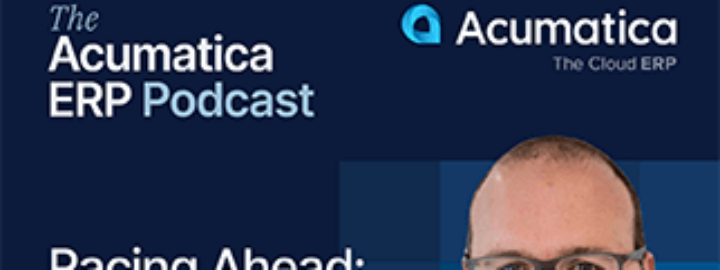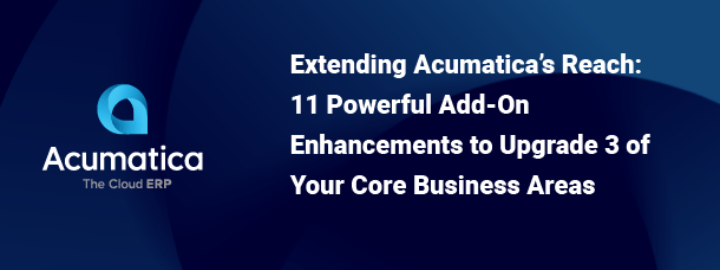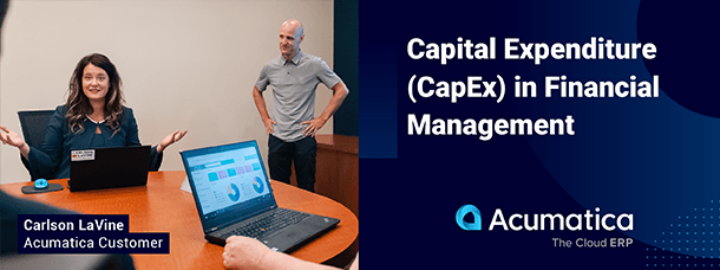
Small and mid-sized businesses (SMBs) are the lifeblood of the U.S. economy, but it’s an economy that is still defined by uncertainty with ongoing threats of international conflicts, trade tensions, and lingering inflationary pressures.
While major corporations continue to downsize and restructure, many of the small and midmarket companies I’ve spoken with are optimistic. Their drive to succeed is fueled by this optimism and the opportunities they see for growth and expansion. However, their determination to grow is often made difficult by some common issues many SMBs are facing. These issues include talent scarcities, which have made financial forecasting problematic, have impacted business cash flow, and have increased overall corporate debt. Sadly, such financial pressure is often one of the main reasons businesses fail.
How can these small and midsized businesses—the engine that drives our economy—overcome this ongoing pressure and experience growth in the face of economic challenges? One way is to move beyond a reliance on simple business software or outdated legacy solutions and adopt modern financial management systems.
What is a Financial Management System (FMS) and Why Do SMBs Need One?
Financial management systems help businesses run their operations. They are software platforms that enable companies to effectively track, manage, and grow their financial resources through built-in accounting, budgeting, financial planning, financial reporting, and cash management features.
With these features, business leaders obtain a clear view into the organization’s financial health, so they can make data-driven decisions that enhance profitability.
How a Financial Management System Can Transform Business Operations
As noted, an ERP solution and its financial management features offer a number of business-enhancing benefits. Taken together, these benefits transform businesses and how they operate.
For example, an ERP solution helps SMBs manage their income, assets, and expenses from a single platform. Their financial information flows into and out of the same system, providing a single source of accounting truth. It also gives real-time data insights that can be used to improve financial forecasting and budgets. Automated features driven by artificial intelligence and machine learning eliminate many manual-powered tasks, leading to fewer human and data errors.
Yet, for small and medium-sized businesses (SMBs) to fully harness these transformative advantages, they must select financial management software that offers customization tailored to their unique requirements and budgetary constraints. With a plethora of options available, ranging from basic accounting software to comprehensive Enterprise Resource Planning (ERP) solutions, SMBs should prioritize ERP solutions over simplistic accounting tools. ERP software provides robust financial functionalities, including the ability to:
- Connect multiple departments and applications (e.g., finances, sales, marketing operations, and third-party applications), ensuring important data is accessible across teams.
- Synchronize and update data to manage planning, investing, and compliance processes.
- Evaluate overall financial health with sophisticated, built-in reporting and analytical tools.
While there are plenty of great benefits, truly knowing which financial management system is best for a business requires some homework.
How to Select the Right Financial Management System
By answering these four questions, businesses will have deeper insight into which system will work for them.
What are our current and future needs? From industry-specific features to being able to tailor a system to their unique requirements, SMBs must determine what they need to succeed in today’s—and tomorrow’s—marketplace.
Is the system scalable? Growth is often the baseline businesses use to rate their success, and, if a chosen financial management system can’t grow alongside a company and flex with internal and external changes, then it’s not the right choice.
Can every team member use or learn how to use the system easily? Investing in a new system is a huge expense, and it will be a wasted effort if team members find the system difficult to use.
How challenging would it be to integrate the system with a third-party application? No matter how comprehensive a financial management system is, a business may have other, very specific applications they need to connect to it. If these integrations will be difficult or impossible, then it’s not the right system.
How Does a Financial Management System Ensure Accurate Financial Data and Security
These key questions—and their answers—are critical to selecting a financial management system, but every SMB must also ask another question before making a purchase: “Will the software vendor offer accurate financial data and top-tier security protocols?”
By actively seeking vendor reviews and conducting thorough research into their security protocols, businesses can confidently entrust their financial data to a reliable solution. This diligence involves verifying that any ERP or integrated financial management solution under consideration has a demonstrable track record of:
- Maintaining its datacenters.
- Hosting on a secure platform (e.g., Amazon Web Services, which automatically encrypts the data that enters its global networks and provides tools to comply with industry regulations).
- Providing automatic software updates.
- Upgrading its hardware as needed.
- Ensuring that the data stored in the system is safe from cyberattacks and hackers with regular monitoring, testing, and backups.
How to Get a Competitive Advantage with an Integrated Financial Management System
Gaining a competitive advantage over SMBs that provide similar products or services is essential to achieving success. But knowing how to gain that advantage can be a challenge—unless a business is like The Learning Lab, a privately owned educational enrichment organization that recognized the power of implementing the right ERP solution with integrated financial management software.
Headquartered in Singapore, The Learning Lab needed a cloud-based ERP solution that could centralize and manage its various financial, CRM, and class-scheduling systems. According to CFO Ying-Jian Chan, growth was not possible in such a disconnected, siloed environment.
“The company was using very outdated accounting software for basic book-keeping,” Chan says. “Our finance team realized this was not sustainable given our volume and growth and set out to replace it with a financial solution with robust financial management for cash management, expense claims and procurement.”
After carefully scrutinizing their ERP options, The Learning Lab team chose Acumatica—and were glad they did. With Acumatica, they were able to:
- Eliminate positions focused on manual data entry between their different financial systems.
- Provide system access to every employee at the appropriate security level.
- Give the finance team back time by having employees enter their own expense claims.
The Learning Lab team now has real-time insights into their accounts receivable and accounts payable processes and has one version of the truth for all stakeholders.
“Putting in a solution like Acumatica with efficient business processes ensures that we have good financial governance and controls in place,” Chan says. “With Acumatica being cloud-based, it definitely enables us to work anywhere, at any time, and this is the direction that everything is headed.”
Learn More About Acumatica
The success story of how Acumatica empowered The Learning Lab to manage its financial health, gain a competitive edge, and flourish amid economic challenges underscores the significance of selecting the appropriate financial management system. Acumatica offers a modern, innovative, and secure cloud ERP solution that is purposely designed and developed to address the needs of today’s SMBs by connecting their organizations end-to-end, delivering deep insights, streamlining workflows, and delivering seamless collaboration throughout the organization.
Explore Financial Management Solutions
Read more from CEO John Case about the importance of financial management systems in his Forbes article, “From Survival to Growth: Leveraging the Power of Financial Management Systems.”
 Canada (English)
Canada (English)
 Colombia
Colombia
 Caribbean and Puerto Rico
Caribbean and Puerto Rico
 Ecuador
Ecuador
 India
India
 Indonesia
Indonesia
 Ireland
Ireland
 Malaysia
Malaysia
 Mexico
Mexico
 Panama
Panama
 Peru
Peru
 Philippines
Philippines
 Singapore
Singapore
 South Africa
South Africa
 Sri Lanka
Sri Lanka
 Thailand
Thailand
 United Kingdom
United Kingdom
 United States
United States













